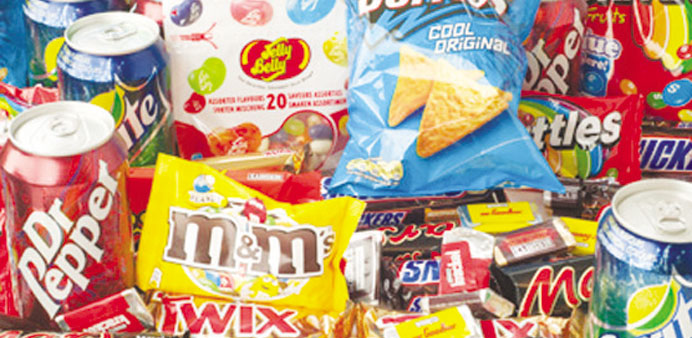Guardian News and Media/London
Convenience stores run by big supermarket chains involved in the government’s responsibility deal on nutrition are exposing children to substantial displays of unhealthy sweets and snack food at the checkout, according to a study.
Researchers at Sheffield University visited the smaller stores of Asda, Sainsbury’s and Tesco in the city and discovered what harassed parents often complain of - that the queue for the checkout often passes shelves of chocolate bars, drinks and sweet snacks at children’s eye level.
In a first, they analysed the food items that were at just the right height for children - about one metre from the ground - and worked out their nutritional value.
The team from the university’s school of health and related research found that 90% of the products children saw as their parents queued to pay were unhealthy, according to the Food Standards Agency’s definition.
They were packed with saturated fat, salt and sugar.
The healthiest item on display was sugar-free chewing gum.
The study featured just 13 stores in Sheffield, but Dr Jason Horsley, who led it, said there was no reason to believe they were unusual.
“I can’t say for sure that the rest of the country is not unlike Sheffield and does not have a completely different eating pattern, but I travel around and haven’t noticed any obvious differences elsewhere.”
The three supermarket chains are all members of the government’s public health responsibility deal, which was launched in 2011 and had been running for a year before the data for the study was collected.
The deal involves food manufacturers, restaurants and supermarkets signing pledges to reduce the amount of saturated fat, salt and calories in food and drinks.
In March 2011 all three supermarket chains pledged to “support and enable our customers to eat and drink fewer calories through actions such as product/menu reformulation, reviewing portion sizes, education and information, and actions to shift the marketing mix towards lower-calorie options”.
The deal is the flagship of the coalition government’s anti-obesity strategy, driven by concerns particularly about the increasing weight of children, a third of whom in the UK are now overweight or obese.
Overweight children are more likely to become obese adults and obesity is linked to a wide range of diseases including diabetes, heart problems and cancer. But it is hard for parents to take a stand against the pester power of children, which has long been recognised by those involved in food marketing.

